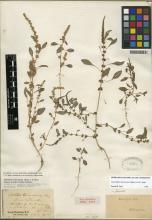Two UBC scientists have been appointed to a national panel tasked with reviewing the state of biodiversity research in Canada.
Professors Wayne Maddison and Sarah Otto will join 13 other biodiversity experts on a Council of Canadian Academies panel which will consider the supply of taxonomic expertise, the effect of changing technologies on the field, and Canada's contribution to biodiversity research at the international level.
The panel, chaired by Thomas Lovejoy, Biodiversity Chair at the Heinz Center in Washington DC, was requested by the Minister of Canadian Heritage on behalf of the Canadian Museum of Nature.
"We're being asked to report on the capacity of Canada to identify, monitor and document trends in biodiversity," says Otto, Director of UBC's Biodiversity Research Centre. "We'll also attempt to identify key gaps in the Canadian infrastructure for biodiversity science and the associated risks of these gaps."
The 2010 International Year of Biodiversity has brought renewed attention to factors that threaten biological diversity, including climate change, pollution, deforestation and urbanization. Meanwhile, an acknowledged gap has developed in global understanding of biodiversity, particularly issues caused by a worldwide shortage of taxonomists, and a lack of research institutes dedicated to biodiversity.
Maddison--Canada Research Chair in Biodiversity and Director of UBC's Beaty Biodiversity Museum--studies spider biodiversity and the use of phylogeny in evolutionary inference. Otto investigates population genetics and evolutionary biology, developing and analyzing mathematical models to study how populations change over time.
McGill University, the Université de Montréal and the University of Toronto are among the other Canadian institutions represented on the panel.
The Council of Canadian Academies is a not-for-profit organization whose mandate is to be a source of independent, expert assessment of the science underlying pressing issues and matters of public interest. The Council addresses the broad spectrum of knowledge--encompassing the natural, social and health sciences, engineering, and the humanities.
Musqueam First Nation land acknowledegement
We honour xwməθkwəy̓ əm (Musqueam) on whose ancestral, unceded territory UBC Vancouver is situated. UBC Science is committed to building meaningful relationships with Indigenous peoples so we can advance Reconciliation and ensure traditional ways of knowing enrich our teaching and research.
Learn more: Musqueam First Nation
Faculty of Science
Office of the Dean, Earth Sciences Building2178–2207 Main Mall
Vancouver, BC Canada
V6T 1Z4


